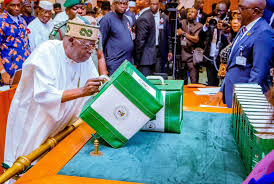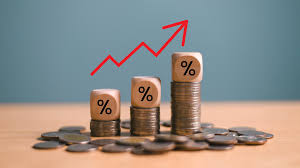President Bola Ahmed Tinubu will formally present Nigeria’s 2025 Appropriation Bill to a joint session of the National Assembly next week, according to government insiders. The move will mark Tinubu’s second budget presentation since assuming office in May 2023.
Preparations are underway at the Presidential Villa and the Ministry of Finance, where final adjustments are being made to ensure the budget aligns with Tinubu’s administration’s Renewed Hope Agenda. The President is expected to emphasize investments in infrastructure, education, healthcare, job creation, and energy reforms.
Sources close to the Presidency revealed that the total budget size is projected to exceed ₦34 trillion, supported by expected improvements in oil revenues, tax reforms, and foreign direct investment inflows. The government is also considering a conservative crude oil benchmark of around $70 per barrel and a daily production target of 1.8 million barrels.
The 2025 budget is likely to prioritize capital expenditure, especially in transport infrastructure such as highways, rail projects, and urban transit. This aligns with Tinubu’s campaign promise to modernize Nigeria’s economy through improved logistics and industrial hubs.
Another major highlight will be job creation programs targeting youths and women. With unemployment still hovering at concerning levels, the government plans to expand vocational training schemes, digital economy initiatives, and incentives for startups.
On the fiscal side, the administration is expected to intensify revenue mobilization through the Federal Inland Revenue Service (FIRS) and broaden the tax net. This, however, has sparked debate among analysts, with some warning that excessive taxation could stifle small businesses.
The education and health sectors are also expected to receive significant allocations. Policy experts argue that without improved human capital development, Nigeria’s economic reforms may fail to achieve long-term sustainability.
Opposition lawmakers have already signaled they will scrutinize the budget carefully, particularly regarding borrowing plans. Nigeria’s debt service-to-revenue ratio remains one of the highest in Africa, and questions linger about how the government will balance spending with fiscal discipline.
Tinubu is expected to defend his fiscal strategy during his speech before lawmakers, outlining how his policies will deliver economic stability and inclusive growth in 2025 and beyond.



